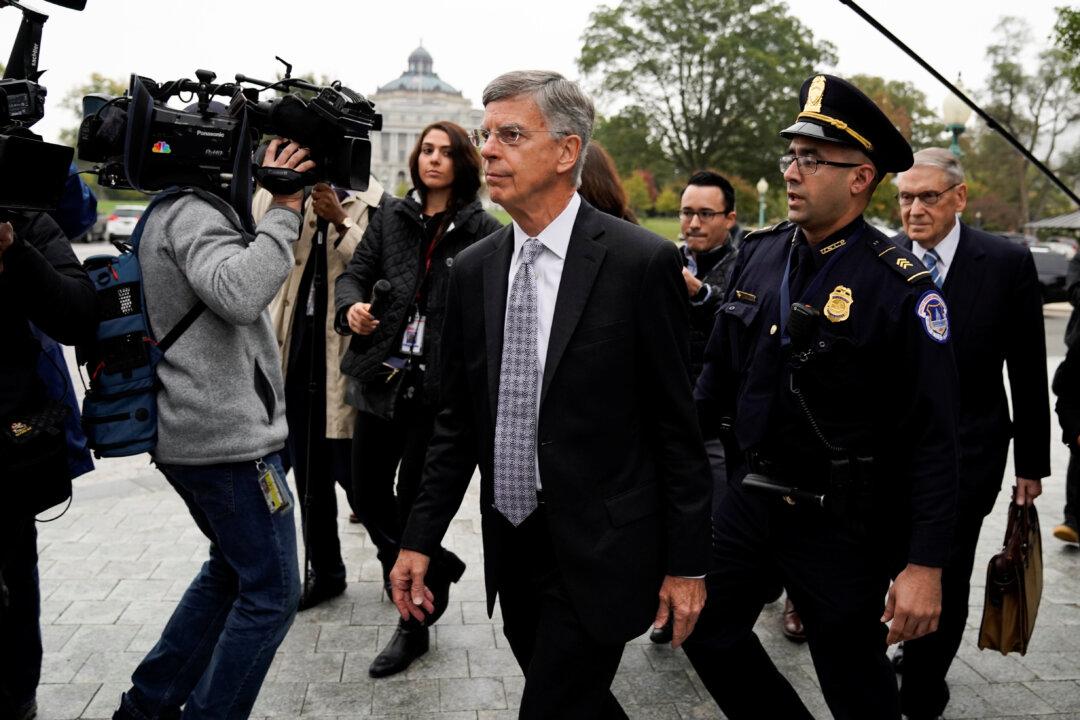The top U.S. diplomat in Ukraine testified to lawmakers behind closed doors on Oct. 22 as part of a Democrat-run impeachment inquiry centered on allegations related to President Donald Trump’s call with the leader of Ukraine.
William Taylor, the charge d'affaires at the U.S. embassy in Ukraine, didn’t answer questions as he walked by journalists on his way to face lawmakers from three House committees leading the investigation.





